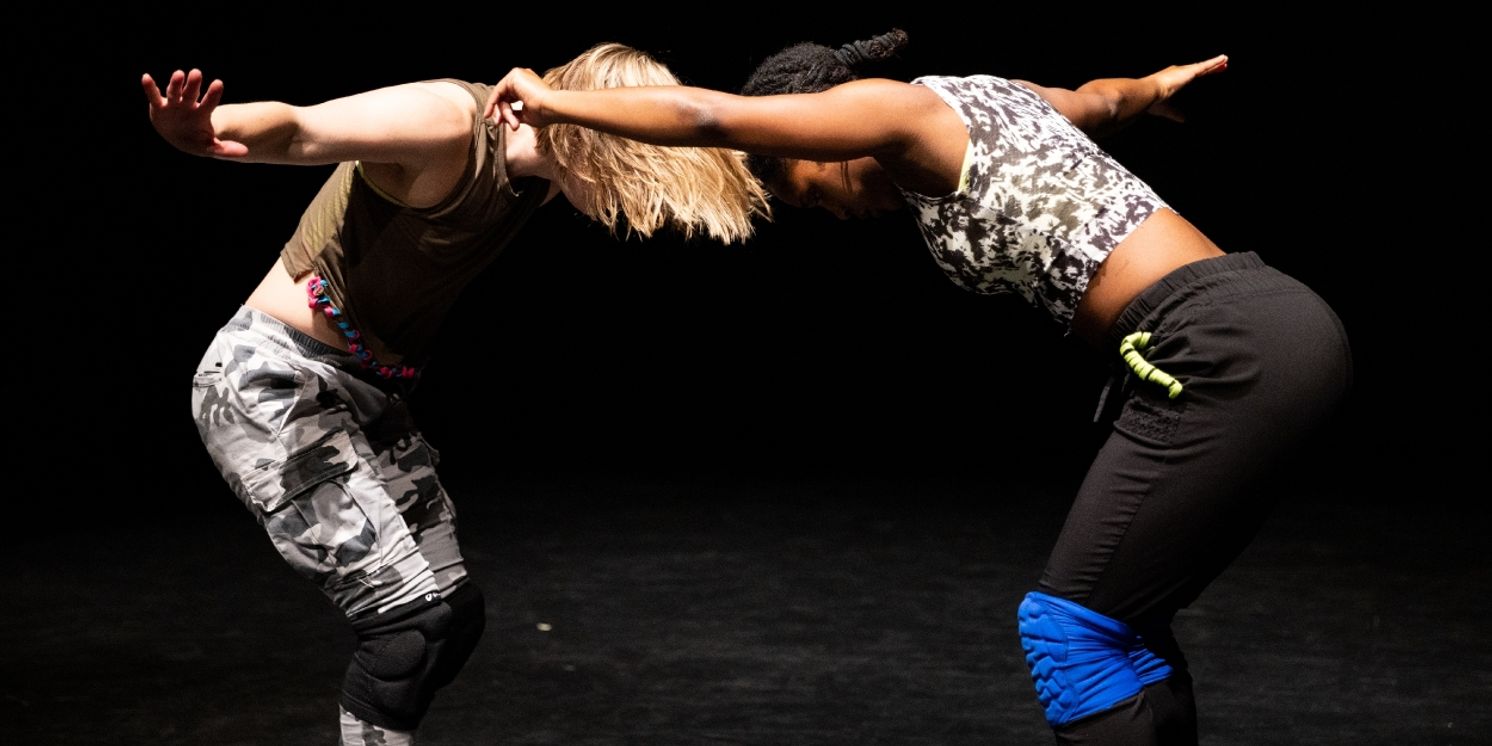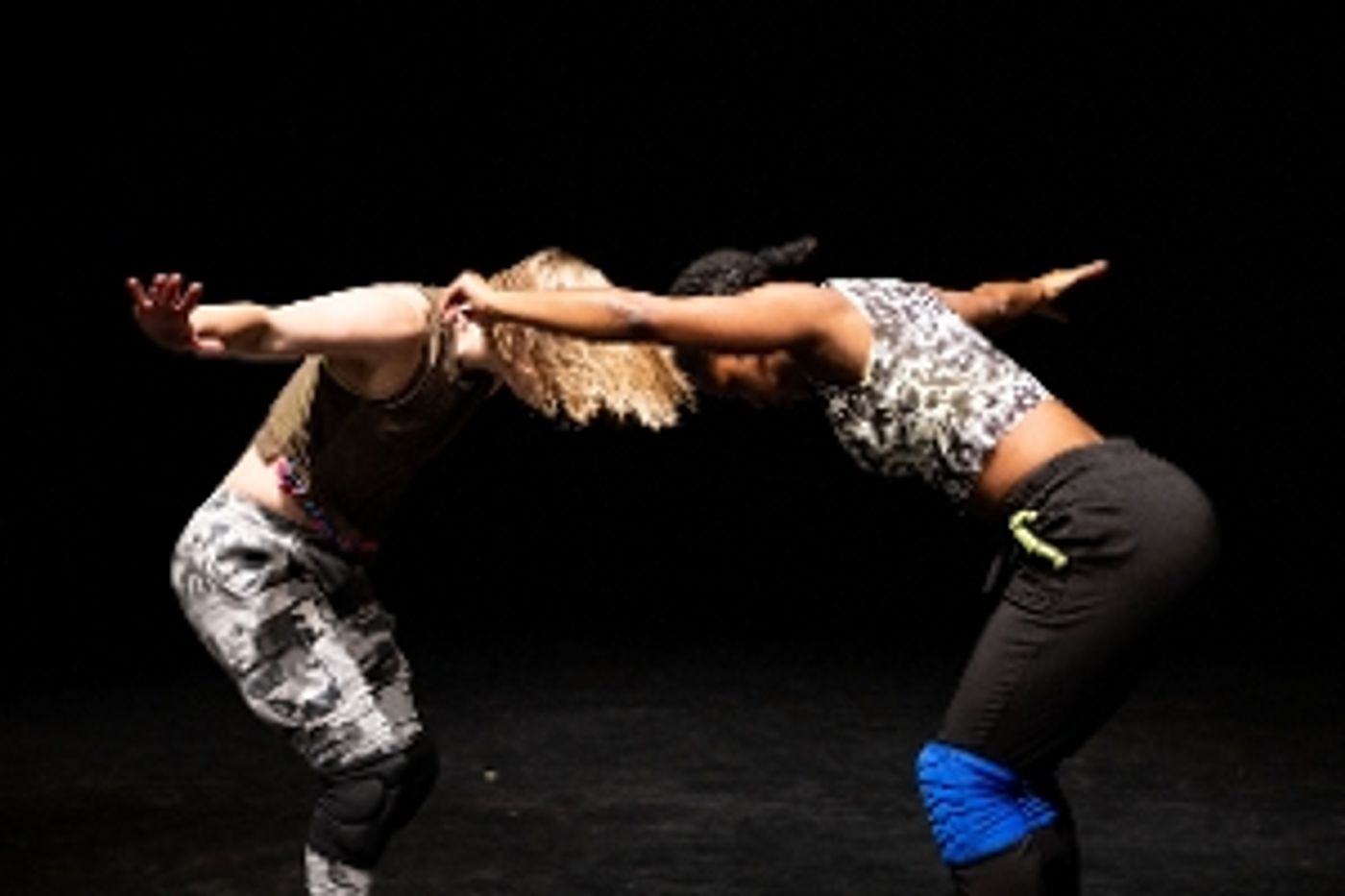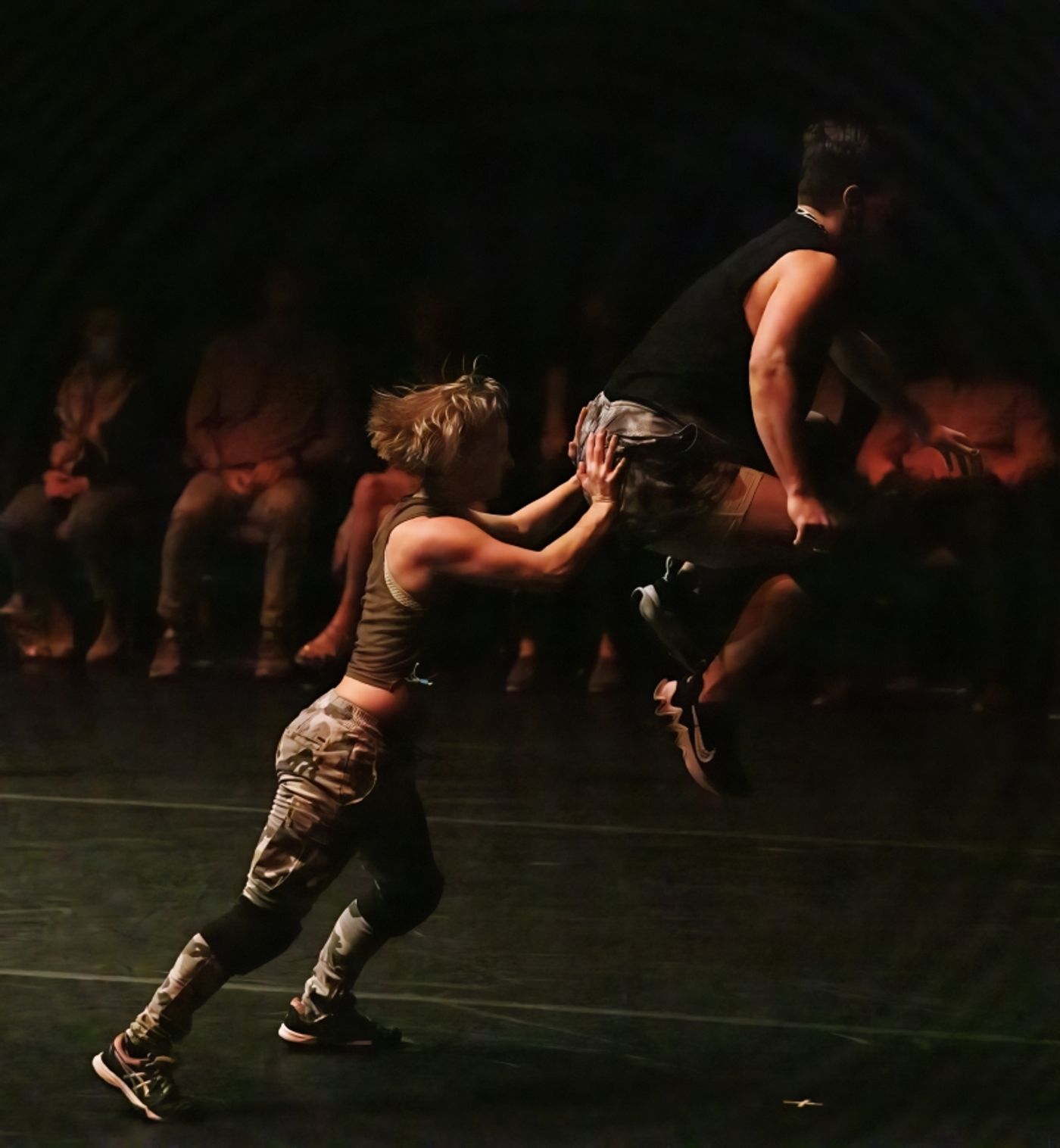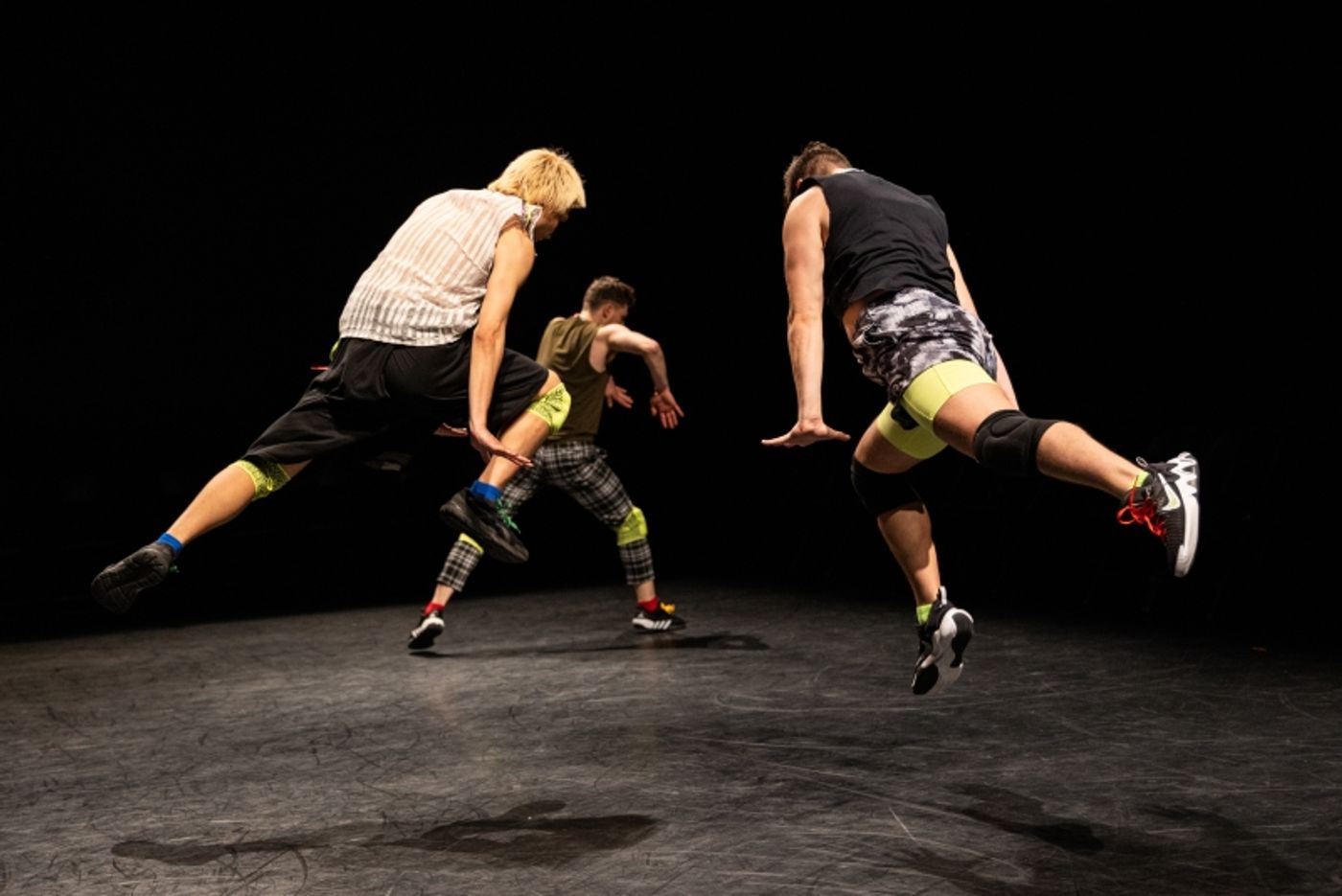Interview: Abby Z of RADIOACTIVE PRACTICE at B Iden Payne Theatre
"It's not your typical sit and be quiet in the audience dance show. "


I recently had a fascinating conversation with Abby Z, director and choreographer of RADIOACTIVE PRACTICE, about her work with the New Utility and this unique show opening Friday as part of the Fusebox Festival here in Austin.
RADIOACTIVE PRACTICE is known for its innovative approach to movement, blending elements of contemporary dance with experimental techniques and concepts. Abby Z is a renowned choreographer known for her dynamic and thought-provoking creations, and RADIOACTIVE PRACTICE is no exception.
Abby Z invites audiences to explore the depths of human expression and emotion and creates immersive experiences that engage both performers and spectators alike. RADIOACTIVE PRACTICE represents a bold and innovative approach to dance, pushing the boundaries of the art form and inviting audiences to explore new realms of movement and expression.
BWW: We have recently expanded our review of local and touring theater to include other works brought to us from Texas Performing Arts. I'm really excited to be with you today, but I know far less about dance than I do theatre. That means that I have some ignorance, or, innocence, if you will, about dance.
I think that's almost what's exciting about Fusebox. There’s some dance but it's not just dance, I feel. This is our second time coming to Fusebox. And it's really great to have people interested in all kinds of disciplines come see the work. Some are maybe not aware of some of the insider knowledge about what I'm doing. It’s almost the purpose of the work to create those new connections for people.
BWW: Can you share with us something about the themes of RADIOACTIVE PRACTICE?
The work is highly physical and I’ll just state that up front. It’s high octane physicality. It draws from the backgrounds of the dancers, all kinds of different dance techniques and practices, but also a lot of non-dance, but movement practices. Some of us find relationships and correlations in them. It’s an understanding of all the different things that make up the world we're living in, where there are boundaries and genres and classifications, that once were deemed black and white, or very cut and dry. We’re realizing it's very messy.
We’re embracing the mess and working through it to create this other event that conjures, you know, the spirit and maybe the image or the feeling of other events that involve people pushing themselves physically and mentally. Oftentimes, there’s elements of sports, almost like gladiators in an arena.
But there is something that the dancers are up to. In order to get through this hour long piece, there has to be a grounding, and there has to be a sense of organization and a sense of self and a way to let go and be in the moment and connect to others.
It's a piece for six people. There's a lot of group sections. There's a lot of solo sections.There's a lot of different permutations of sections inside of the work. But even when there's one person on stage, you hear and see the people, because it's done in the round, the rest of the cast is cheering them on and helping push them along the way. So nobody's acting in the piece.
It is really a reflection of the times. A lot of my questions have to do with the practice of dance right now. What is contemporary dance like? What does that word mean? Has that become a classification unto itself that needs to be undone? There's so much possibility. And what are the words we used to describe it, because what we're doing is not a hybrid of different forms.
The six people working on stage came with all this information, and have worked collaboratively with all of us to build this thing. You can feel the worlds of information and where they come from. But we're not literally doing steps that are recognizable from a specified form.

BWW: You’re describing something that for me embodies a certain kind of spirituality, connection, being present. Does that come up in the work you do?
My training has been predominantly in African forms and a lot of West African dance and working with contemporary African artists. As a matter of fact, my partner is also the dramaturg for the work.
His name is Momar Ndiaye, and he is Senegalese. Well, he's American now, but he's, you know, born and raised in Senegal, West Africa. So culturally speaking, my understanding of dance has always been because of the forms I've done and the way community is built in those spaces. There’s always been this spirit, whether it's like the human spirit or other spirits that are involved in whatever practice is happening.
There is something that will come up, conversations will come and go. I try not to be too heavy handed in meaning making when it comes to what my dancers are experiencing, because I'm trying to capture the authentic experience for them. But there's a lot of correlation between connection and spirituality and energy sharing and playing on a sports team together or getting through some other traumatic experience with a group of people. There's connective tissue that can relate to all these things. And it rings true. It means different things to different people, both in the work and watching it. As a maker, I want to build the space for people to be able to meet the work where they are. So if they're seeing that element of it, and that's really speaking to them, then I encourage them to keep feeling that because it's in there.
BWW: I'm just loving this theme that you continue to return to, which sounds to me like connection and being present.
Well, it demands that of the audience, because it is a 55 minute piece, and I would say there is sound playing for a total of 5 min. It is pretty much done through the rhythms of the dancers. They wear sneakers. So you hear the sneakers on the floor. You hear bodies hitting the floor. You hear the heavy breathing. You hear them cheering one another on. There's a rhythm to all of that. On a sensory level, it depends a lot on the audience as well. It’s roping the audience in on that connection.
.jpg?format=auto&width=1400) BWW: Is there a connection that you might want to speak to in regard to working through things together and the importance of what you're doing at this particular time when there has been so much collective trauma and uncertainty in the last several years?
BWW: Is there a connection that you might want to speak to in regard to working through things together and the importance of what you're doing at this particular time when there has been so much collective trauma and uncertainty in the last several years?
I can say that I have seen the power of dance utilized in certain communities and healing, particularly in black communities, and have experienced it in training. I see the potential in dance because of that. There are certain populations who have always experienced trauma and uncertainty, you know, particularly in this country. I lean into what I know as a possibility, but also trying to make sense of it for myself. I'm the choreographer and director, and I’m a cis white woman, so how do I make sense of what I've experienced and the possibility and the experiences of all the other people I'm working with? How do I handle that ethically? I feel like this is a problem I've always been trying to solve. It does seem really important right now because the world feels kind of off its axis on so many levels and in so many different spaces.
I can speak to the dance world and it’s been a massive kind of shift coming out of Covid and coming out of the uprisings of 2020, and we saw a shift. And now things are starting to settle again. I'm hoping that what I do and what I can provide is my little part of working with the people I work with and opening up people to these ideas.
BWW: Will you share more about your experience of connection and working with your dancers?
This piece was supposed to premiere in March 2020, and we were literally in tech rehearsal the week New York City went into lockdown, we were taking photos, we were ready to go, and then we closed up shop, not knowing if this piece would ever happen again. I was initially working with ten people and we had to stop. I mean, we really had to stop because you couldn't have more than ten people in a room. I couldn't even have the whole cast in a room.
Then I moved. New York isn't necessarily the home base of operations anymore. Now I’m working with the Wexner Center in Ohio. They provided us a residency to rebuild the piece because they're one of the commissioners on it. I had four original people and two new people came on.
There’s two people that I've worked with for over ten years, Fiona Lundie and Jennifer Meckley. They have been fundamental to understanding what dance can do, and evolving my vision and path as a maker. They’re rehearsal directors, and they bring other people into the fold, especially because it's a lot physically and mentally. It can be a lot, how physical the work is, but you have to manage the mental side, too. And that's kind of part of the cohort and team building that happens in a rehearsal process.
Fiona was a highly competitive synchronized swimmer and comes from a family of Olympic level athletes. Jen is an industry dance and hip hop performer. They have vastly different backgrounds, movement wise. But there is something about working with them and having these conversations about coaching them from the outside to give them agency to tap into what they already know, but allow us to go into new places with the work.
The collaboration is really dependent on me not knowing a final outcome before a process starts. Because of this process, there's something that I need to not control from the onset. There is a kind of social experiment taking place inside of the process itself. I try to stay true to that, which means there's a lot of feedback and hearing from people.
For instance, I'll introduce movement, but the mechanics of it won't really be clear, and it's up for grabs for everybody to work together to figure out what is actually going on in it. How do we build a new vocabulary? Everyone's contributions and everybody's body, they all dance so differently, but they dance so beautifully together. And we’re giving a lot of space for them to interpret whatever they think I'm saying, because dance can be such a funny, confusing thing. We’re leaning into the fact that everybody is going to approach what I say from a completely different space. I intentionally play dumb and don't answer questions, because I'm so interested in where they want to take it and what that presents.
I used to have a section that was like, okay, tell me a story in words. Then: tell me a kinetic story in ten moves. Then: Okay. Tell me that same story in five moves. Okay. Tell me that same story in three moves. Now tell me that same story in one move until I can see how their logic takes place in going from a sentence to something smaller, more truncated. It’s trying to make as much impact on one idea as possible in what they consider a move that was really up for interpretation.
In the rehearsal process, I am almost more interested in the things that I really don't understand. Those are typically the things that end up staying in the work, because there's something kind of new and uncanny and right about it. What is this code here? What is happening here? There's something important about how this person is seeing this, let's all try that on.
BWW: Is there a specific inspiration behind Radio Practice?
This is who I am, and these are the questions I'm continuing to ask, and I'm making headway, but they're still so far to go. The purpose is exploration.

BWW: What do you hope we take away from the experience?
I like to ask people to ponder “why.” Oftentimes when we're confronted with things we don't understand or feel or that look really new, and people are like, “Oh, I don't know that, and that's not for me, so I'm not gonna engage with it.” I'm really interested in people who are like, “I don't know what this is,” and then exploring it. Hopefully we're creating something you can’t look away from. It’s intentionally constructed to be slightly confusing, but still inviting enough to sit with and process the possible ramifications.
BWW: Is there anything else you want people to know about the show?
People should come to the show and have their own experience of it. They might come upon a meaning, and think about it a week later, because it's a lot of information and it's a lot of sensory input to experience right away. I'm not expecting people to have an “Aha!” moment. Maybe some people who are maybe a little bit more comfortable with certain dance aesthetics and are aware of certain traditions might have a different experience, but there's no wrong way to come to it.
We have kids come to performances, people of all ages, all backgrounds, and that's really exciting.
Feel free to participate in the encouragement of the dancers on the stage if you are moved to, but it's not a requirement. It's not your typical sit and be quiet in the audience dance show. You can interact, cheer people on, applaud, you know, all those things. Come and have a normal human reaction. Leave the more traditional rules of dance at the door.
RADIOACTIVE PRACTICE runs Friday April 12th through Sunday April 14th, and the show runs approximately one hour.
In addition to the show, you can join these events with Abby Z
Invisible Borders: Conversation about border and body politics in the work of artists Tania El Khoury and Abby Z
Moderated by Sanchita Sharma
Location: Origin Studio House | 2925 E 12th St, Austin, TX 78702
April 13, 2024 12:30 pm
Post-performance discussion
Immediately following the Fri, Apr 12 & Sat, Apr 13 performances
Audience members are invited to stay for a talkback with members of the company
For Fri, Apr 12 & Sat, Apr 13 Ticket-holders Only
Videos

